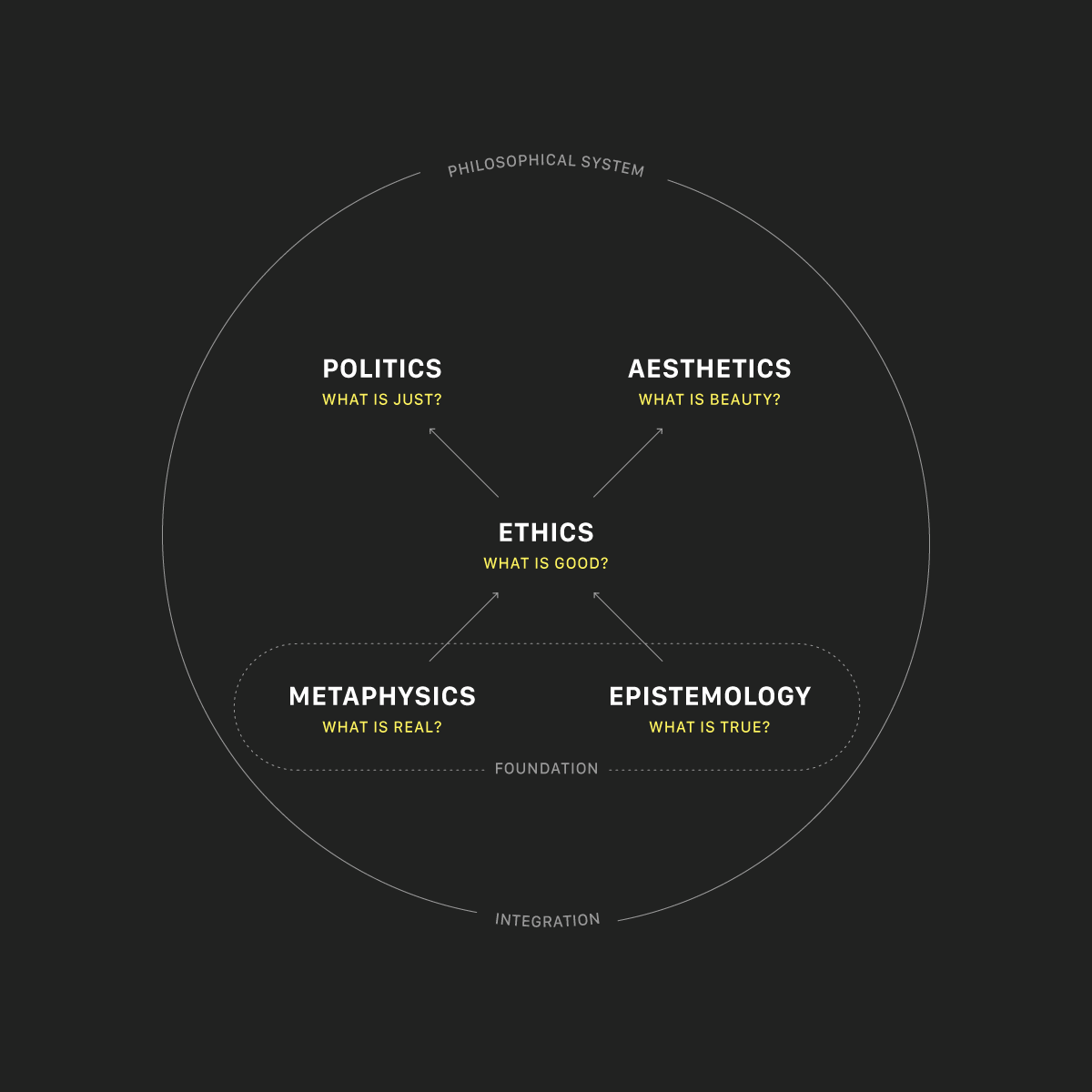Do you have a philosophy? Having a philosophy is different from studying philosophy. Having a philosophy means that you adhere to certain principles and integrate these principles with all other ideas. Those without a philosophy are at greater risk of being "tossed to and fro and blown about by every wind of doctrine."
A philosophy system is like a building. Each must be built upon a foundation. The foundation always comes before the walls, windows, and ceilings. A building without a foundation will collapse. The height of a building is dependent on the strength of its foundation. Sometimes we notice the facade of the building before we think about the foundation. This is true in philosophy. For example, we often notice political ideas without recognizing the assumptions behind those ideas.
The foundation of any philosophical system rests on Metaphysics and epistemology. Metaphysics is the study of what reality is like. Epistemology is the study of knowledge. Neither can stand alone. Each co-implicates the other. These are the foundational branches of philosophy because all other ideas are dependent on them.
The central branch of philosophy is ethics. It is the study of how one should act. One cannot have an ethics without understanding reality and the consequences it brings. Hence, metaphysics and epistemology are necessary for a developed ethics.
Philosophical systems lead to implications in politics and aesthetics. Politics is how one applies an ethics in the context of society. One can practice ethics if he is alone on an island, but he cannot practice politics without other people. Aesthetics is the study of the arts—music, literature, and fine art. It asks questions such as "What is art?, "Is there an objectively good or bad art? and if so, "What is good art?
This understanding of how different branches of philosophy fit into a coherent whole is an aid to properly integrating our ideas.



